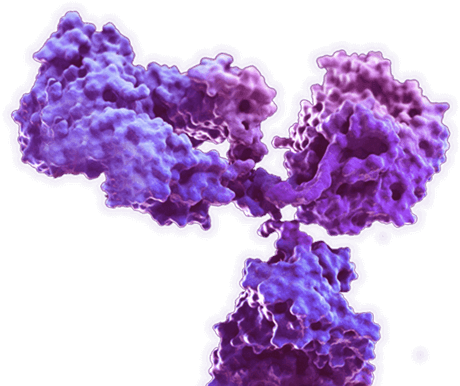Rabbit Anti-ST13 Antibody (MO-DKB-01548W)
Cat: MO-DKB-01548W
Certificate of Analysis Lookup
To download a Certificate of Analysis, please enter a lot number in the search box below. Note: Certificate of Analysis not available for kit components.
Lot Number
To download a Certificate of Analysis, please enter a lot number in the search box below. Note: Certificate of Analysis not available for kit components.
Lot Number
| Size: | |
| Conjugate: | |
| Inquiry |
- Product Details
Specifications
| Host species | Rabbit (Oryctolagus cuniculus) |
| Species Reactivity | Human (Homo sapiens), Mouse (Mus musculus), Rat (Rattus norvegicus), Bovine (Bos taurus), Dog (Canis lupus familiaris), Rhesus (Macaca mulatta) |
| Immunogen | A recombinant protein containing sequences within the central region of human HIP. |
| Epitope | The epitope is in the Center of ST13. |
| Format | Liquid or Lyophilized |
| Buffer | PBS, pH 7, 20% Glycerol, 1% BSA |
| Storage | Store at 4°C: short-term (1-2weeks) Store at -20°C: long-term and future use |
| Purity | Affinity purified |
| Cellular Localization | Cytoplasm |
Application Information
| Application | WB |
| Application Notes | Western Blot 1:5000-1:20000 |
Target
| Introduction | The protein encoded by this gene is an adaptor protein that mediates the association of the heat shock proteins HSP70 and HSP90. This protein has been shown to be involved in the assembly process of glucocorticoid receptor, which requires the assistance of multiple molecular chaperones. The expression of this gene is reported to be downregulated in colorectal carcinoma tissue suggesting that it is a candidate tumor suppressor gene. Alternative splicing results in multiple transcript variants encoding different isoforms. [provided by RefSeq, Jun 2013] |
| Product Overview | This product is a Rabbit antibody against the Center of the ST13. It can be used for ST13 detection in Western Blot. |
| Alternative Names | ST13, Hsp70 Interacting Protein; Progesterone Receptor-Associated P48 Protein; Suppression Of Tumorigenicity 13 (Colon Carcinoma) (Hsp70 Interacting Protein); Suppression Of Tumorigenicity 13 Protein; Renal Carcinoma Antigen NY-REN-33; Putative Tumor Suppressor ST13; Aging-Associated Protein 2; FAM10A1; AAG2; SNC6; HIP; Testis Secretory Sperm-Binding Protein Li 233m; |
| Gene ID | 6767 |
| UniProt ID | P50502 |
See other products for " ST13 "
| CBMOAB-59158FYA | Mouse Anti-Rhesus ST13 Antibody (CBMOAB-59158FYA) |
| MO-AB-20962R | Mouse Anti-Cattle ST13 Antibody (MO-AB-20962R) |
| MO-AB-46699W | Mouse Anti-Horse ST13 Antibody (MO-AB-46699W) |
| MO-AB-08056H | Mouse Anti-Frog st13 Antibody (MO-AB-08056H) |
| MO-AB-65422W | Mouse Anti-Marmoset ST13 Antibody (MO-AB-65422W) |
| CBMOAB-64100FYA | Mouse Anti-Zebrafish st13 Antibody (CBMOAB-64100FYA) |
| MO-AB-15182W | Mouse Anti-Chimpanzee ST13 Antibody (MO-AB-15182W) |
For Research Use Only | Not For Clinical Use.
Online Inquiry


